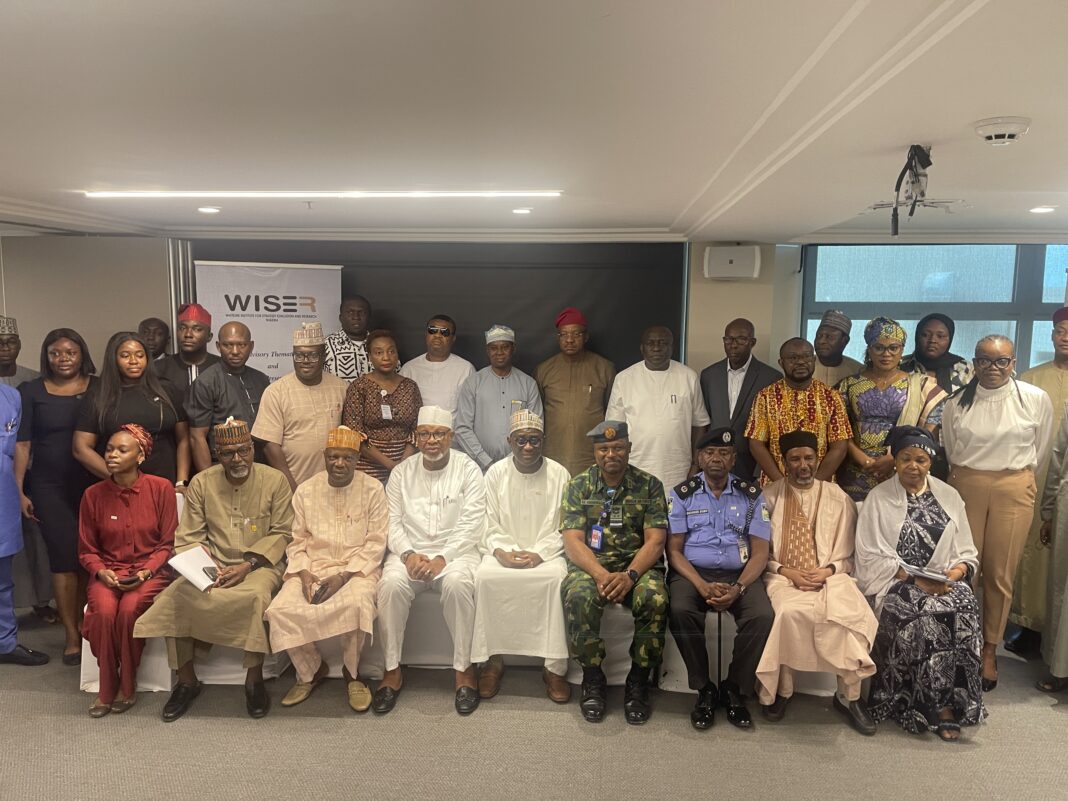Navigating Nigeria’s cybersecurity landscape
In an era defined by rapid technological advancements and unprecedented digital connectivity, Nigeria stands at a critical juncture in its cybersecurity journey. As the nation navigates the complexities of cyberspace, the convergence of artificial intelligence (AI) and cybersecurity presents both opportunities and challenges. Against the backdrop of escalating cyber threats, the Whiteink Institute for Strategy Education and Research (WISER) has sounded a clarion call to action, urging the Federal Government of Nigeria to prioritise the development of a skilled workforce capable of countering these digital dangers. At a recent policy advisory thematic lecture organised by WISER in Abuja, stakeholders convened to deliberate on emerging information technology trends and their implications for national security. This article by Senator Iroegbu, explores key insights gleaned from the discussion, offering actionable recommendations to fortify Nigeria’s cybersecurity resilience in the age of AI.
A call to action
In the face of escalating cyber threats, the Whiteink Institute for Strategy Education and Research (WISER) has issued a clarion call to the Federal Government of Nigeria to prioritise the development of a skilled workforce capable of combating these digital dangers.
At a recent policy advisory thematic lecture organized by WISER in Abuja, a research report entitled: ‘Emerging Information Technology Trends and Effects on National Security’, was presented, outlining key recommendations to bolster Nigeria’s cybersecurity resilience. Lead Research Assistant, Ms. Azeeza Balogun, underscored the critical need for cyber security curricula to be implemented across various sectors to cultivate the requisite workforce.
“It is imperative that Nigeria invests in cyber-diplomacy to ensure African perspectives are represented in global cyber governance,” stated Balogun. She underlined the importance of raising awareness and leveraging Artificial Intelligence (AI) to proactively safeguard the nation’s digital infrastructure.
However, Balogun cautioned against overzealous measures, advocating for a balanced approach to securing the information space. She urged the government to engage in wide consultations to prevent the imposition of restrictive policies that could infringe on citizens’ rights or stifle civic space.
In alignment with these recommendations, Brig.-Gen. Saleh Bala (Rtd), President of WISER, highlighted the evolving nature of governance, shifting towards a human-centric paradigm. He stressed on the critical role of civil society in overseeing government actions and safeguarding civic liberties in the digital age.
Mr. Khalil Halilu, Executive Vice Chairman of the National Agency for Science and Engineering Infrastructure (NASENI), echoed the urgency of addressing cyber threats, amplifying the importance of informed decision-making and collaborative efforts. He commended WISER for its comprehensive approach to tackling cybersecurity challenges and underscored the significance of the report’s recommendations in shaping policy and promoting best practices.
Download document:
As Nigeria grapples with the complexities of cyberspace, the call to action is clear: prioritise education, foster international collaboration, and safeguard citizens’ rights. By heeding these recommendations, Nigeria can build a resilient cybersecurity framework that protects both state and citizens in an increasingly digital world.
Nigeria’s digital future and cyber resilience
Amidst the evolving landscape of cyber threats, the compelling call to action for the Federal Government of Nigeria to prioritise the development of a skilled workforce capable of countering these digital challenges became necessary.
Balogun, as earlier noted in her paper, underscored this urgent need for the implementation of cybersecurity curricula across diverse sectors to cultivate a proficient workforce equipped to tackle cyber threats head-on.
“In addition to fostering technical expertise, Nigeria must also cultivate a cadre of cyber-diplomats to advocate for African perspectives in global cyber governance,” she said while stressing the importance of proactive awareness initiatives to position Nigeria strategically in leveraging AI for long-term advantage.
However, Balogun cautioned against hasty measures, urging the government to exercise caution in its approach to securing the digital realm. She underlined the necessity for wide consultations to prevent the imposition of restrictive policies that could curtail citizens’ rights or stifle civic space, highlighting the potential risks of “techno-authoritarianism.”
Furthermore, Balogun emphasised the imperative for Nigeria to engage in collaborative efforts with international partners to address its evolving information technology needs while adhering to global best practices. She emphasised the importance of proactive, predictive policies that protect individuals from online threats while aligning technological advancements with societal values.
In response to the increasing ubiquity of information technology among citizens, Balogun stressed the importance of proactive measures to safeguard both the state and citizens. She also stressed the crucial role of civil society in upholding fundamental rights and promoting responsible use of technology, calling for continued investment in the development of international laws and regulations that safeguard citizens’ rights in the digital age.
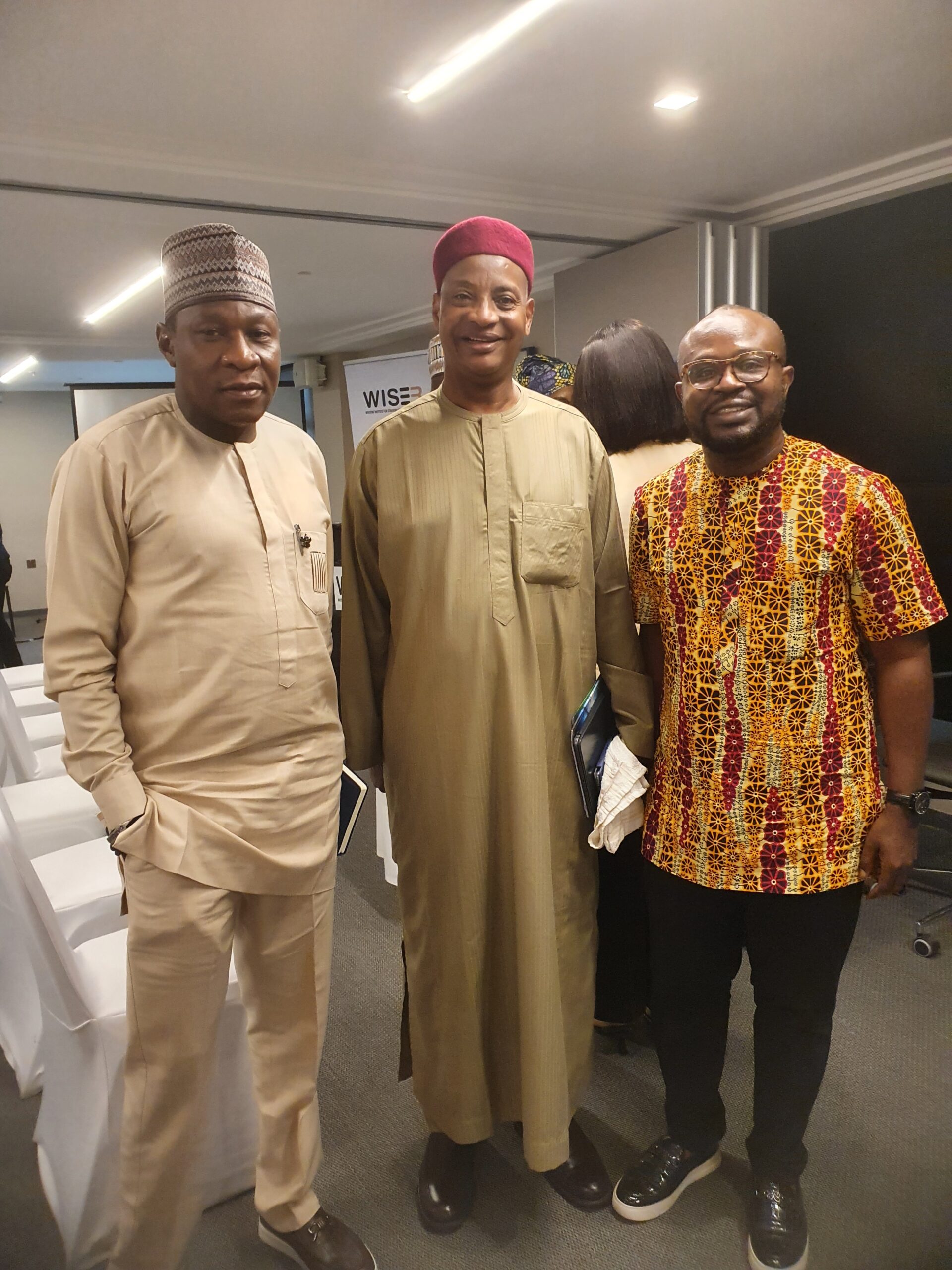
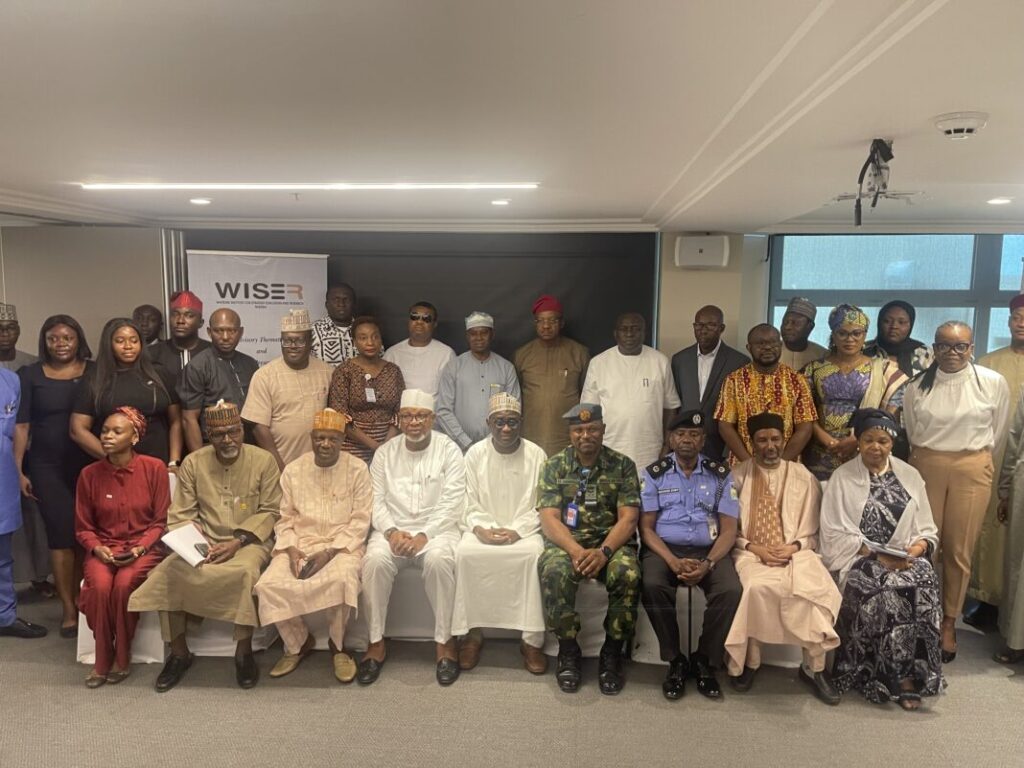
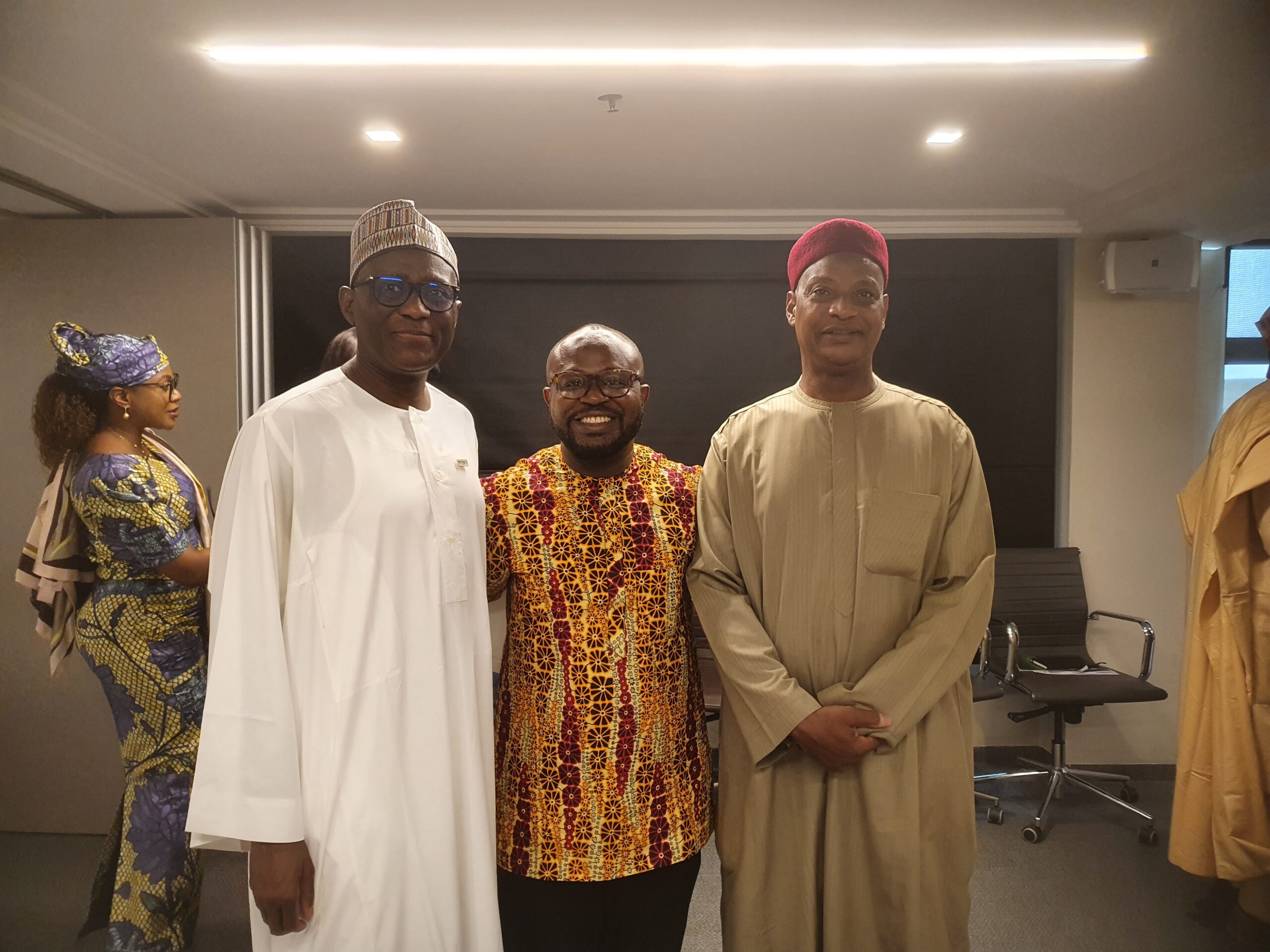
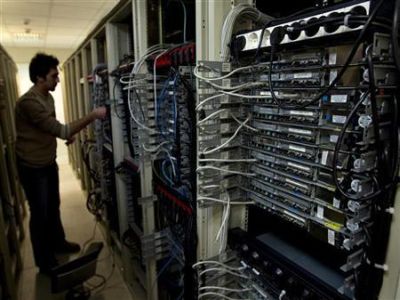
She noted that recommendations put forth by WISER would serve as a roadmap for building a resilient cybersecurity framework that safeguards both state and citizens in an increasingly digital world.
Key quotes
- Nigeria must assert control over digital platforms within its borders and invest in AI technology for its long-term advantage.
- Protecting individuals from online harassment, exploitation, and violence is crucial.
- Civil society should continue its responsibility to protect citizens’ fundamental rights and efforts to promote responsible use of information technology.
Balancing state and citizen rights
Bala, who had spoken earlier in his welcome remarks, provided insightful commentary on the evolving dynamics of governance in the digital age, highlighting the shifting paradigm from state-centric to human-centric governance. The president of WISER underscored the inherent tensions and challenges stemming from this transition, noting pushbacks from various stakeholders on both domestic and international fronts.
In his analysis, the ex-commander of the Nigerian Army Infantry Corps emphasised the pivotal role of information technology as a catalyst for communication across human societies. He noted that the rapid pace of innovation and adaptability in the digital realm has raised critical concerns for governments at all levels, from local to global.
Bala lamented the tendency of states to respond to these challenges with an influx of regulations, which, while intended to ensure security, often encroach upon citizens’ liberties and rights. He cautioned against the criminalisation of liberties, noting the vital role of civil society in safeguarding the sanctity of the civic space and protecting citizens from potential abuses of information technology.
The impetus behind the research, according to Bala, lies in understanding the causes and effects of exponential technological growth and its impact on both state and citizen. He highlighted the need for collaborative efforts among diverse stakeholders to leverage technology in a manner that enhances efficiency and liberalism without compromising citizens’ rights.
Key quotes
- Information technology as an enhancer/enabler of communication across human societies has become a confluence of multifaceted and multidimensional ideas and interests.
- State response has been the introduction of regulations and more regulations, which rather stifle society’s ability to exercise liberties and even their fundamental rights to expression and association in ways that seem to criminalise liberties.
- Civil society has been at the forefront of sighting the government’s effort and guarding the sanctity of the civic space, particularly in securing it from untoward usage and application of information technology capabilities to ensure the rights of citizens are not abused.
National security and cyberspace challenges
Halilu, on his part, gave a comprehensive analysis of the escalating concerns surrounding cyberspace and information technology. The Executive Chairman of NASENI highlighted the multifaceted nature of these concerns, ranging from terrorism and radicalism to electronic fraud and defamation, all of which pose significant threats to national stability, privacy, safety, and development.
In emphasising the urgency of addressing these challenges, Halilu commended WISER for its proactive approach to tackling the issue head-on. He lauded the institute’s multifaceted methodology, which includes desk research, stakeholder advocacy consultations, virtual programs, policy-level round-table discussions, and public presentations of comprehensive reports. Halilu underscored the significance of WISER’s commitment to thorough analysis and informed decision-making, acknowledging that the recommendations stemming from their program would play a pivotal role in shaping policies governing thematic security and related areas.
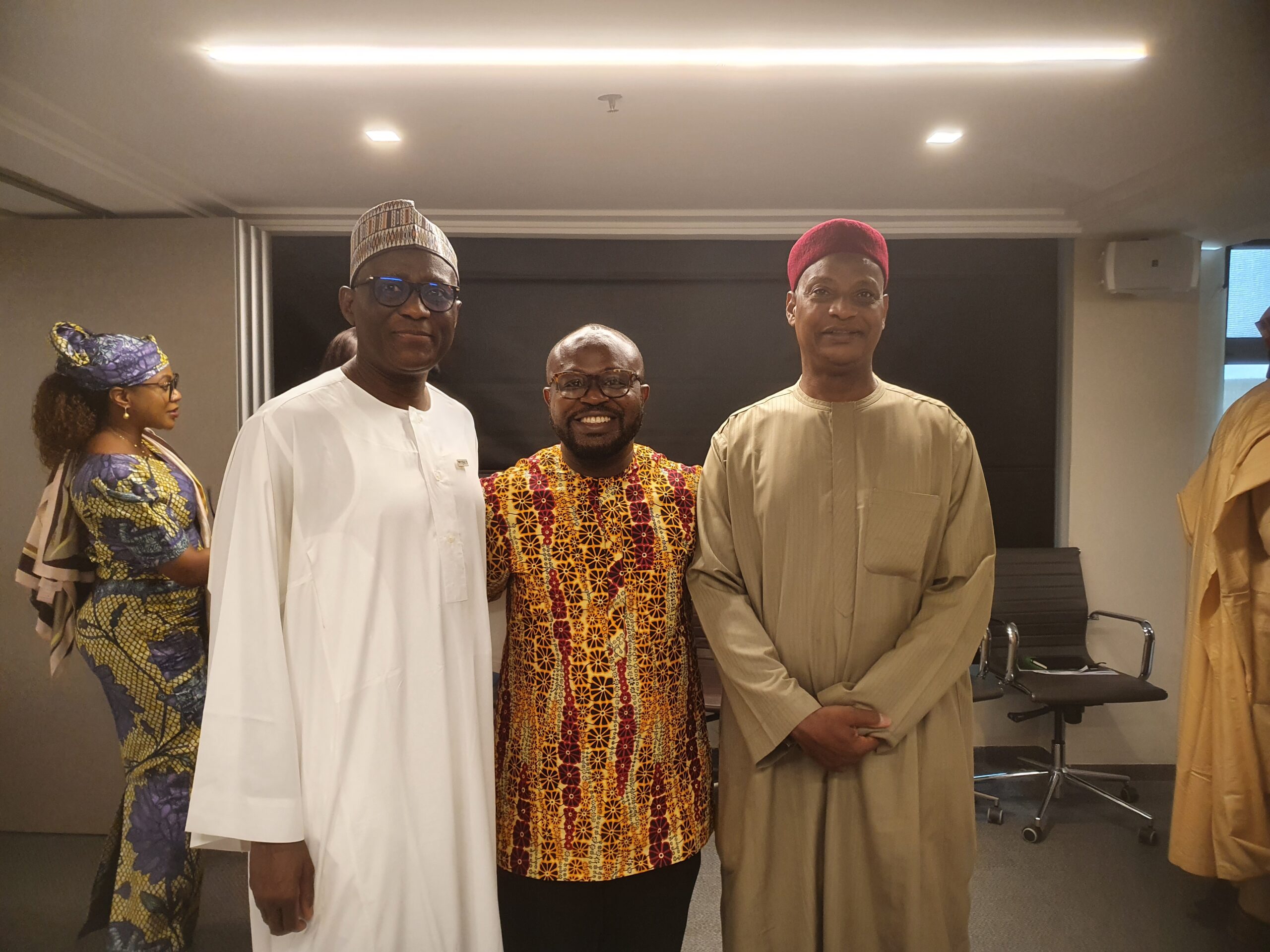
He further emphasised the importance of the report in identifying weaknesses, strengths, and areas for improvement in thematic security and related fields. He noted that it would not only expand the global knowledge base but also promote best practices in addressing threats to global peace. Furthermore, Halilu underscored the report’s potential to enhance understanding of critical domestic and international security issues, ultimately harnessing the proper use of cyberspace and information technology for the benefit of all stakeholders.
Key quotes
- We must address these challenges effectively to safeguard our nation and its citizens.
- I commend WISER for developing a project objective that seeks to tackle this issue head-on.
- The recommendations arising from this programme will undoubtedly contribute to the formulation of appropriate policies governing thematic security and related areas.
Insights from experts
A panel of distinguished discussants further shed light on the emerging trends in information technology, particularly AI, offering valuable perspectives on the evolving landscape. Among the esteemed panelists were Amb. Usman Sarki, former Nigeria’s Deputy Permanent Representative to the United Nations; Mr. Abdul-Hakeem Ajijola, Chair of the African Union Cyber Security Expert Group (AUCSEG); and Ms. Catherine Angai, a seasoned lawyer and development consultant. Their reflections followed a keynote lecture by Prof. Bashir Galadanci from Bayero University Kano, with additional insights shared by Ms. Adedoyin Adelabu, a lead consultant at 3 Streams Synergy Ltd.
While Amb Usman provided the diplomatic perspectives on AI and cybersecurity, Ajijola on the other hand, cautioned against the perils of excessive reliance on AI. He also pointed out the symbiotic relationship between humans and machines, wherein the latter continually learn from human behaviour. He proposed a pragmatic approach to avoid being ensnared or misled by AI, advocating the adoption of the ABC model: A – Assume nothing; B – Believe no one; and C – Check everything.
Echoing these sentiments, Sen. Abdulaziz Musa Yar’Adua, a prominent Nigerian lawmaker, expressed concern that the pressing security challenges facing the nation have diverted attention from the imperative of formulating robust policy frameworks for AI and its associated technologies. Despite this setback, Yar’Adua pledged to collaborate with the National Assembly, WISER, and other stakeholders to champion the advancement of AI initiatives. “AI is already here, but insecurity has overshadowed it. It needs national coverage, and we should be in a hurry to have a roadmap on AI,” remarked Yar’Adua, drawing from his extensive military background.
Key quotes
- Humans are hooked (to their phones and devices), and machines are learning.
- AI is already here, but insecurity has overshadowed it. It needs national coverage, and we should be in a hurry to have a roadmap on AI.
Takeaways/Recommendations
•Investment in cybersecurity education: Implement cybersecurity curricula across diverse sectors to cultivate a proficient workforce capable of tackling cyber threats head-on.
•Proactive awareness initiatives: Foster awareness initiatives to strategically position Nigeria in leveraging AI for long-term advantage while safeguarding against potential risks.
•Balanced policy approach: Exercise caution in policy formulation to prevent the imposition of restrictive measures that could infringe on citizens’ rights or stifle civic space, advocating for wide consultations to ensure inclusive governance.
•International collaboration: Collaborate with international partners to address evolving information technology needs while adhering to global best practices, leveraging collective expertise to enhance cybersecurity frameworks.
Conclusion
As Nigeria charts its course in the digital age, the imperative of cybersecurity preparedness looms large. By heeding the call to action set forth by WISER and embracing proactive measures, Nigeria can build a resilient cybersecurity framework that safeguards both state and citizens in an increasingly interconnected world. Through investment in education, fostering international collaboration, and adopting a balanced policy approach, Nigeria can navigate the cybersecurity landscape with confidence, ensuring a secure and prosperous future for all.

